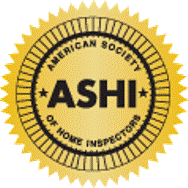You’ve heard it before – buying a home is the largest investment some folks will make in a life time! How can you protect that investment? Gather the right team and allow the professionals to help make sure your home is safe and sound.
When you decide to buy a home you’ll sign a sales contract asking you to set aside earnest money (a deposit). Earnest money tells the seller you are serious about buying their home. Your contract will most likely include an inspection contingency clause. If you don’t accept the conditions of the inspection you may have your deposit returned.
Don’t be tempted to waive the home inspection. Without an inspection you’ll lose the chance to have a professional overview of the property. Keep in mind, inspectors don’t just look at the home in it’s current condition, they can provide an in-depth analysis describing conditions that may become a problem down the road.
Here are a few tips when hiring a home/property inspector.
TRUST
Don’t be overwhelmed. Know what to expect. Take your time! If you start your search early you’ll be glad you hired a professional you can trust. Look for an inspector before you shop for a home. If you choose a home first, time is critical and you may feel pressured to pick the first inspector you meet (often not a good idea).
HOW TO HIRE

- CALL AND SPEAK WITH THE INSPECTOR…and, call more than one. Interview at least three or more professionals.
- Do not base your choice on PRICE only. It’s understandable – you want value – but you want to be smart. Reduced fees could indicate lack of experience or/and a “not-so-thorough” inspection.
- Ask friends and family for recommendations or look up a list of local inspectors on the American Society of Home Inspectors website.
- Do your research and ask lots of questions of prospective inspectors, including their backgrounds, the length of time they’ve been in the business, the number of inspections they’ve performed and type of report they’ll provide.
- Look for an inspector with a broad knowledge of a home’s systems and structures, not just a specialized person such as a plumber or electrician.
- If your state regulates home inspectors, check with the state agency to verify the inspector’s license and check his record for complaints.
- If your state does not regulate inspectors, look for credentials such as certification by ASHI.
- Make sure your inspector is objective, independent and does not have any affiliation with the real estate agency selling the home. Some inspectors donate money to associations in return for special favors/referrals. Check with your local realtor websites and review major donors lists.
- Is the home inspector offering free warranties, free alarms, free insurance and a host of other free “gifts”. Keep in mind, if a freebie is too good to be true, it usually is. Many times the end result will lead to your personal information will be sold to vendors. Ask for and read the inspector’s contract agreement for clauses relating to free give-a-ways.
- Choose an inspector who carries errors and omissions insurance.
- Do an online search and read reviews.
- Ask the inspector if he/she offers maintenance advice.
- Will the inspector offer ongoing support or advice once you move into the home.
- Take the time to speak with several inspectors and have confidence in their skills and demeanor.
- Be sure your inspector is familiar with the particular type of house you’re considering. Homes of different ages, designs and materials each have special risks and offer special signs, symptoms and clues to hidden damage.
- Choose an inspector who can deliver a completed report with plenty of time for review. Most inspectors offer an electronic copy of the report. Ask…so you can e-mail it to friends and family.
 REPORT
REPORT
At the end of the inspection, you receive a written report detailing all findings. The report should contain:
- complete descriptions of observed damage
- noted defects found during the inspection
- a detailed location of damage
- pictures help you understand the scope of the issue(s)
- maintenance tips and suggestions
- Does the report highlight any problems that could present a safety hazard?
Remember, start early. Interview more than one. Find and get comfortable with an experienced pro. You’ll be glad you were picky! Smart Move!
- - - - - - - - - - - - - - - - - - - - -